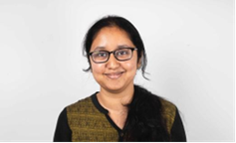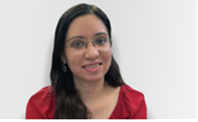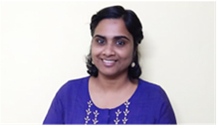
Last date for nomination: July 19, 2024
Course Objective
Tailored for NGO leaders and key members of their Programs and Monitoring and Evaluation (MnE) teams.Course Outcomes
A few of the topics covered during the 2-day session:- Why is it important to have a logic model
- Creating a program impact statement
- Determining Indicators
- Calling out assumptions and risks
- Presenting Logic Models
Outcomes after the workshop are:
- Increased knowledge and understanding of organizational capacities;
- Increased confidence among participants/NGO leaders and staff;
- Improved mindset of the Founders/leaders toward capacity building;
- Thought partnership for the NGO leaders in their journeys.
Pre-requisites
- Organizations with minimum 2-5 years of work / existence in the social sector and commitment to bring more clarity to their theory of change
- Commitment to complete pre-work, post-work and attend both the virtual sessions.
Expected Commitment
Total 8-10 hours / workshopCourse Details:
- Pre-work: Reading or exercise material will be shared with all the participants, which would set them up for learning during the workshop, on the topic so selected.
- Pre-survey: The pre-survey helps to gauge the knowledge, skills and confidence levels of the participants and their organizations BEFORE the workshop.
- Workshop: The key content on the topic so selected will be delivered in a 2-3 hour long workshop over two days.
- Post-survey: The post-survey helps to gauge the knowledge, skills and confidence levels of the participants, and their organizations, AFTER the workshop. The difference in the same vs. the pre-survey is the incremental impact of the Atma workshop.
| Phases | Module | Activity/No of hours | Mode of Delivery | Location |
|---|---|---|---|---|
| Phase 1 | Prework | Online | Virtual | |
| Phase 2 | Coursework | Zoom | Virtual | |
| Phase 3 | Feedback | Zoom Platform | Virtual | |
| Phase 4 | Ongoing support between /during modules | The participating NGO is open to reach out to Atma. Atma is open to conducting offline calls (maximum five) with NGOs in between the three workshops. | Virtual | |
| Phase 5 | Post-work | Six months after the workshop, we will do a check-in to gauge medium-term impact of the workshop in terms of changes made by the participants in their organizations. During this period, the NGOs will be encouraged to reach out to Atma for any support they need. | Virtual | |
About The Resource Organization
Atma is an Accelerator for Education NGOs and Social Enterprises in India. Atma was founded in 2007 to support and strengthen education organizations. We believe that these organizations can lead the way in reforming education. However, faced with a severe lack of financial and human resources, they are unable to realize their true potential. In this context, Atma supports NGOs in their capacity building journey across nine organization development areas. It currently operates across India.Wesbite: https://atma.org.in/
Course Facilitator

|
Vernon is Chief Programme Officer at Atma and leads the Program vertical. He has two decades of experience in the development sector with leadership experience in helping organizations design and operationalize impactful, scalable and sustainable projects. He is deeply passionate about education. He strives to enable individuals to gain access to quality education, and to rise to the challenges of a developing yet globally competitive country. He is excited to drive this process through the capacity building of NGOs at Atma. Before joining Atma, he worked at the British Council. He also has experience in designing and delivering large-scale transformation projects in Education with State governments in India. He has worked in partnership development, relationship building, strategy, operations, governance, and project management as well. |

|
Aishwarya is a Lead Consultant at Atma. Here she manages the Knowledge, Impact and Programs (KIP) vertical. With a degree in law from NALSAR University of Law, and a PGDM from IIM Lucknow, she has close to eight years of experience in the corporate and non-profit sectors. During her time at Atma, she has worked on supporting the capacity development journeys of Atma's NGO partners across areas such as strategy, fundraising, and monitoring and evaluation. |

|
Kavita works with Atma as a Program Consultant to provide support on capacity-building projects. She has over 12 years of experience in the development sector in managing diverse roles. These include providing mentoring and capacity-building support to nonprofits and social enterprises, leading and executing programs, and building organizational processes. She has done her MBA in Human Resources. Previously, she has worked with EdelGive Foundation, where she managed the corporate employee volunteering program, and with UnLtd India, where she managed the Incubation program, along with mentoring social entrepreneurs. She has also worked with different NGOs as a consultant. Her key skill areas include strategic planning, financial budgeting, impact measurement, process development, and human resources. |

|
Vaishali has been working in the development sector for the past seven years. She brings grassroots experience and learnings on issues of child rights, violence against women, and education. She holds a Master's in Education from TISS, Mumbai. She is interested in law, caste and gender. |
Testimonials
Siddhi Kalbhor, PRAYOG
“I got a lot of clarity on the stages of forming a Logic Model. My key learning is that it is always good to begin a new project with a Logic Model to brainstorm and reflect on it deeply. It provides a good framework as the model can keep on evolving as we proceed with the implementation.”
Ambreen Bashir, JKASW
“I am in this sector from past more than 15 years and have been developing Logical Model Framework for some projects. But it used to be more generic and illegible. After the two-day workshop with the Atma team, I could develop the Logical Model document for my WIPRO project and that has been well appreciated. The structure and the content are legible and well-articulated. Even our field functionaries could comprehend it well. I personally thank Aishwarya Menon from Atma, who even after the workshop had follow up sessions with us to further support us to modify the Logical Model strategy document. In the future, I would love to be a part of enhancing my capacity through such initiatives. Thanks a lot, to WIPRO team for giving us such opportunities to grow.”
“I got a lot of clarity on the stages of forming a Logic Model. My key learning is that it is always good to begin a new project with a Logic Model to brainstorm and reflect on it deeply. It provides a good framework as the model can keep on evolving as we proceed with the implementation.”
Ambreen Bashir, JKASW
“I am in this sector from past more than 15 years and have been developing Logical Model Framework for some projects. But it used to be more generic and illegible. After the two-day workshop with the Atma team, I could develop the Logical Model document for my WIPRO project and that has been well appreciated. The structure and the content are legible and well-articulated. Even our field functionaries could comprehend it well. I personally thank Aishwarya Menon from Atma, who even after the workshop had follow up sessions with us to further support us to modify the Logical Model strategy document. In the future, I would love to be a part of enhancing my capacity through such initiatives. Thanks a lot, to WIPRO team for giving us such opportunities to grow.”


